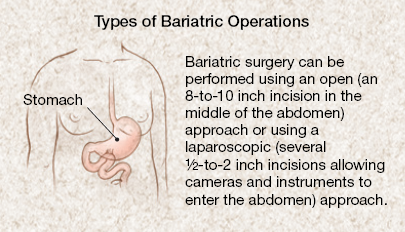According to Union health ministry of India (Dec 2008 Guidelines):
- Normal Weight: Body Mass Index (BMI) of 18.5 – 22.9 Kg/m2
- Overweight: Body Mass Index (BMI) of 23 – 24.9 Kg/m2
- Obese: Body Mass Index (BMI) of 25 or more
An Indian needs drug therapy if BMI is 25 kg/m2 or more.
An Indian qualifies for bariatric surgery if BMI is 32.5 kg/m2 as opposed to the international standard of 35 kg/m2
According to World health Organization/International Standard:
- Normal Weight: Body Mass Index (BMI) of 18.5 – 24.9 Kg/m2
- Overweight: Body Mass Index (BMI) of 25 – 29.9 Kg/m2
- Obese: Body Mass Index (BMI) of 30 or more
- Morbid Obese: BMI of 40 or more (roughly, 45 kg more than your ideal weight)
 After extensive research it has been concluded that, Surgical Treatment is the only proven method of achieving long term weight control for the morbidly obese, when all other therapies have failed. Only 5 Obese maintain weight loss with diet and exercise out of 100.
After extensive research it has been concluded that, Surgical Treatment is the only proven method of achieving long term weight control for the morbidly obese, when all other therapies have failed. Only 5 Obese maintain weight loss with diet and exercise out of 100.